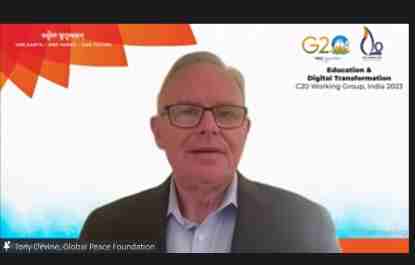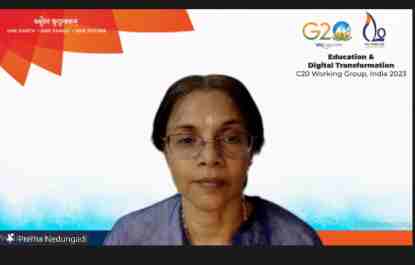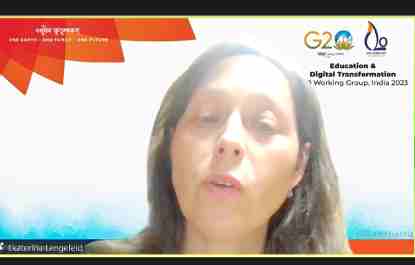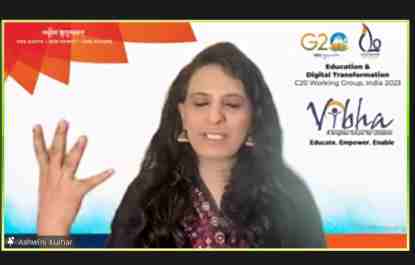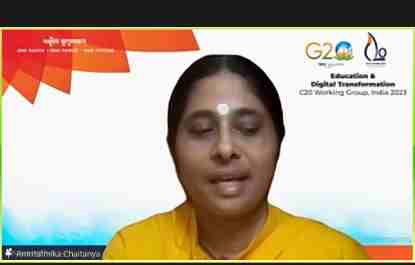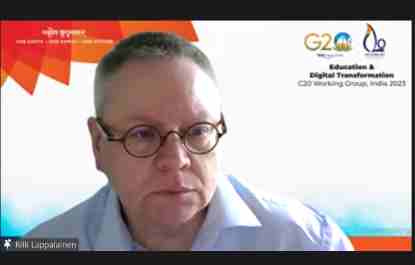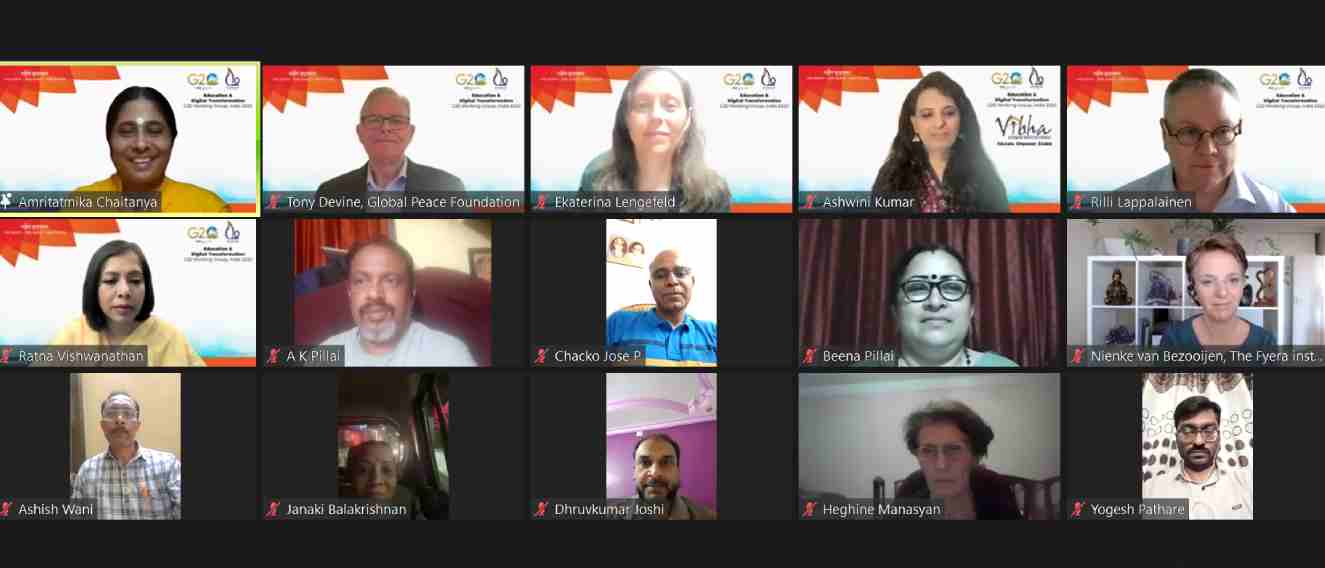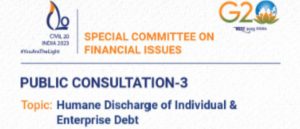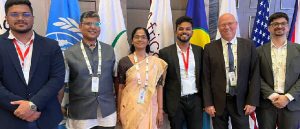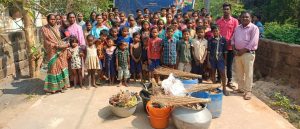The C20 Education and Digital Transformation working group recently hosted an online event titled Policy Dialogue on Education for Life and Global Citizenship. Participants from 13 countries attended the event.
Dr. Prema Nedungadi, Civil 20 EDT Coordinator, Director of Amrita CREATE, and Chairperson of the School of Computing, Amritapuri, emphasised the importance of promoting education for life by creating value-based education system and also compassionate human beings having the mental strength to face difficulties and overcome obstacles. Bri. Amritatmika Chaitanya, Assistant Professor at Amrita Vishwa Vidyapeetham, moderated the session. She is a national coordinator of AYUDH.
Rilli Lappalainen, Founder and Chair of Bridge 47 Network, acts as a global network to bridge different actors to support, promote and implement SDG 4 Quality Education. He spoke on global citizenship education based on respect for diversity and a shared sense of humanity: “We need to transform the education that gives the skills for everyone to survive.”
As Vice President, Education at Global Peace Foundation, Dr. Tony Devine works closely with the education ministry, schools, universities, and civil society stakeholders. He said that every aspect of education must be transformed. He said, “In the current education system, the emphasis is on knowledge acquisition and less on collaboration, communication, and relationship skills.” He added that the education and curriculum must match societal and workforce needs so that students can lead a quality, wholesome life.
Ms. Ratna Viswanathan is the Chief Executive Officer at Reach to Teach, a social impact organisation working towards improving teaching and learning outcomes in government schools. She is passionate about making learning a joyful experience. She said that learning must take place out of curiosity. She emphasised the importance of creating an environment that supports children to learn happily. Additionally, empathy and ownership must be taught to children early on.
Ratna Viswanathan shared the Udaharan of the Finland School System, which has only one curriculum, and only the public school system is available. The education system promotes equality and equity, giving everyone the same access and opportunities. Finland has consistently secured the top spot on the World Happiness Index. It also reflects social services and their environmental aspects.
Ms. Ashwini Kumar, Chief Executive Officer at Vibha, pointed out that self-awareness helps individuals understand the world and gives them the courage to participate in their community. According to her, talent and skills must go together to face life’s challenges by developing a curriculum and system that makes youth emotionally resilient. She adds that educational outcomes must be integrated with societal impact.
An interesting question arose regarding whether one nation and one education system are possible. Rilli Lappalainen said that while having one education in a culturally diverse country is possible, this approach may lead to missing out on the brilliance and richness of ethnicity, food culture, attire, and learning local context, local stories, and local traditions. However, he suggested that working on a framework to integrate different aspects of local context, culture, and learning into one’s understanding that everyone has the same rights, opportunities, and access to education where one is left behind must be the goal.
